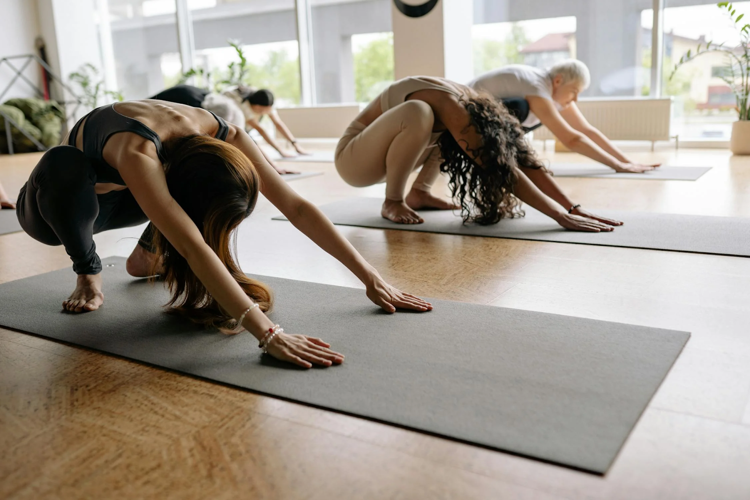Studies show that Google processes around 70,000 health-related searches per minute. While some people are looking for information about specific symptoms or services, many are on the hunt for tips and advice. The amount of information available to us can be overwhelming. If you enter search terms linked to healthy living and wellness, you’ll be greeted with endless pages of links, ads and articles. Knowing what to believe and which advice to follow can be challenging, especially when information is conflicting.
Finding easy health hacks can simplify the process of adopting positive lifestyle changes and habits. Taking up a hobby is a fantastic example. In this guide, we’ll discuss the brilliant benefits for your body and mind.

Learning new skills
One of the best reasons to take up a hobby is to learn new skills. From photography, baking and cooking to playing sports, learning a language and designing and making clothes, there are all kinds of opportunities to expand your knowledge base, discover new talents and hone your skills. Search for activities that complement your interests or intrigue you and find out more about local clubs, groups or teams.
Developing skills is beneficial for gaining confidence and broadening your horizons, but it can also be an excellent way to unveil new interests and passions and enhance your career prospects. You may find that you have hidden strengths or that you stumble upon a hobby that you want to turn into a full-time job or a new business venture, for example. Learning opens doors and it can take you in different, unexpected directions.
Relaxing, resting and decompressing
Stress levels are rising and mental health disorders have become increasingly prevalent. Many of us struggle to relax and switch off and we’re prone to stress. Having hobbies is an easy, effective way to rest and decompress, especially if you’ve had a long day or a busy week. Creative pursuits, active hobbies and simple pleasures like playing a game of roulette for fun on your phone after an intense meeting can help you de-stress, reset and unwind. Hobbies provide a distraction and they’re fun. If you’re feeling overwhelmed, you’re exhausted, or you’ve been dealing with mood swings, taking time to indulge your interests is beneficial. Even if you only have a couple of minutes to play an online game, watch a clip from your favorite TV show or do some yoga poses, you’ll feel better.
Understanding how to relax is particularly helpful if you’re stressed or anxious, or you’re having a tough time. We all have different interests and stressors. Learning what works for you can help you manage and express your emotions constructively. Perhaps you want to feel calmer or you’ve been struggling to find motivation or summon up energy and enthusiasm of late, for example. You may turn to soothing activities like reading, listening to or playing music, singing, knitting, baking, doing Pilates or hiking, or you might enjoy a surge of energy and optimism by playing team sports, going for a bike ride or doing a spin or dance class. Use your hobbies to help you boost and protect your mental health.

Meeting new people
We live in strange times. In many ways, it’s easier than ever to form connections with other people, but in others, it’s harder to make friends. We can connect via social media, instant messaging, phone and video calls and emails, but it’s often more difficult to meet people in the real world. Studies show that loneliness has become more common. Taking up a hobby is a great way to meet people and build relationships. If you join a group, club, society, association or team, you instantly have a shared interest with other members. You can use this as a foundation for developing friendships. Attending regular sessions, meetings and classes also makes it easier to stay in touch with people and build stronger relationships.
There are myriad options to explore when it comes to using hobbies to meet other people. Brilliant examples include joining a choir, playing in a band, group or orchestra, going to exercise and fitness classes, signing up for art, design, crafting and photography workshops, joining games societies and book clubs, and playing team sports.
Making the most of your free time
Many people long for more free time, but when they have spare time, they don’t make the most of it. If you’re always running errands or doing jobs, or you waste entire mornings thinking about what you’re going to do that afternoon, having a hobby is an excellent way to use your time constructively. Your interests can provide inspiration for how to spend downtime, enjoy your evenings and weekends and plan outings or occasions with friends and family members. From family bike rides, hikes and activity weekends in national parks to painting, cooking or pottery classes with friends or a fishing, golf or surfing trip with your siblings, there are opportunities to maximize every minute away from your desk.

Taking time out from work and other commitments
Research suggests that over 60% of Americans don’t feel they have a healthy work-life balance. One of the main reasons is working too much and not taking paid leave allocations. Working long hours is not always beneficial in terms of productivity and output and it can increase the risk of stress and burnout. Taking up a hobby is an effective way to push yourself to work towards a better balance. If you manage your diary and make time for your interests, this will help you get your schedule in order. Hobbies, whether they’re creative, relaxing or active, can encourage us to take time out of work and other commitments and focus on having fun, recharging our batteries, and enjoying a change of scenery.
To reap the rewards of taking up new hobbies, it’s essential to be strict about how you spend your time. This may mean saying no sometimes and being more assertive when it comes to your working hours. Treat your spare time in the same way as your core working hours. Block out periods for exercise, creative hobbies, social plans and activities that help you relax and switch off. Perhaps you’d like to go to a weekly yoga, art, HIIT or cookery class, or you want to keep your weekends free for hiking, open-water swimming or playing tennis, for example.
Exploring natural environments
Studies indicate that spending time in nature is one of the best natural tonics for better mental health and well-being. Whether you live near the coast, you have a park on your doorstep or your home overlooks rolling hills, it’s beneficial to explore natural environments. Having a hobby is a great way to discover different places and appreciate the beauty and tranquility of woodlands, forests, lakes, mountain ranges, beaches, gardens, parks, and oceans. If you love being in nature, hobbies that may interest you include surfing, kayaking, walking, orienteering, gardening, painting, drawing, photography, rock climbing, caving, swimming, hiking, mountain biking, winter sports, birdwatching, fishing, foraging, paddleboarding, and stargazing.

Many of us want to embrace healthier lifestyles without making drastic changes. If you’re searching for easy health hacks that really work, taking up a hobby offers incredible benefits for your body and mind. From active adventures to calming pursuits, indulging your interests and discovering new passions can help you learn new skills, explore different environments, meet new people, de-stress, relax, have fun, and achieve a healthier work-life balance. Popular examples of hobbies include team sports, cooking and baking, hiking, cycling, swimming, yoga, dance, photography, painting, drawing, sculpting, singing, playing musical instruments, learning a new language, and playing games.





(0) comments
We welcome your comments
Log In
Post a comment as Guest
Keep it Clean. Please avoid obscene, vulgar, lewd, racist or sexually-oriented language.
PLEASE TURN OFF YOUR CAPS LOCK.
Don't Threaten. Threats of harming another person will not be tolerated.
Be Truthful. Don't knowingly lie about anyone or anything.
Be Nice. No racism, sexism or any sort of -ism that is degrading to another person.
Be Proactive. Use the 'Report' link on each comment to let us know of abusive posts.
Share with Us. We'd love to hear eyewitness accounts, the history behind an article.